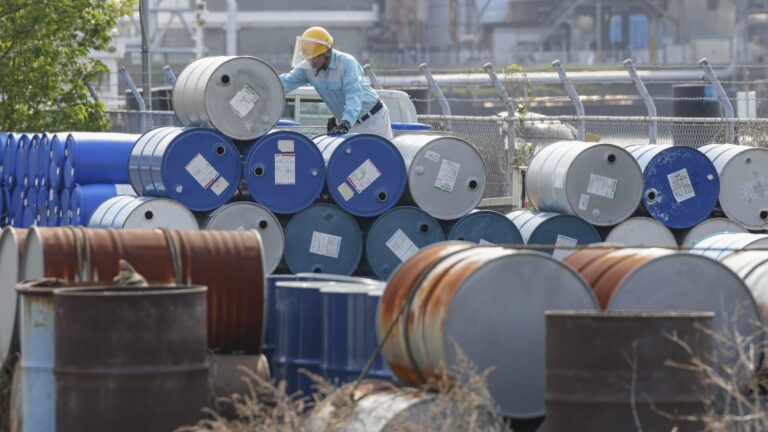Oil storage drums stacked in the Keihin industrial area of Kawasaki, Kanagawa Prefecture, Japan, on Monday, April 15, 2024.
Toru Hanai | Bloomberg | Getty Images
U.S. crude oil futures were lower Monday as traders breathed a sigh of relief after Israel fended off a large-scale air assault by Iran and the U.S. emphasized it wants to avoid a wider war in the Middle East.
The West Texas Intermediate contract for May lost $1.22, or 1.42%, to $84.44 a barrel. June Brent futures fell $1.24, or 1.37%, to $89.21 a barrel. U.S. crude closed at $85.66 a barrel Friday, while the global benchmark settled at $90.45. WTI futures began the year around $71 a barrel.
“Market participants have decided that this chapter of this war story is over for now,” Helima Croft, head of commodity strategy at RBC Capital Markets, told told CNBC’s “Squawk on the Street” on Monday.
But Israel’s war cabinet is still weighing how it will respond to the attack: “You could still see some significant Israeli retaliation,” Croft said.
Iran launched more than 300 drones and missiles against military targets in Israel on Saturday in an attack that President Joe Biden described as “unprecedented.” The U.S. intervened to directly help Israel shoot down nearly all of the incoming munitions, Biden said in a statement Saturday.
Though significant in scale, the Iranian attack caused little actual damage in Israel. The Nevatim Air Force Base in southern Israel sustained slight damage and a 10-year-old girl suffered injuries, according Israel Defense Forces spokesman Daniel Hagari.

WTI and Brent prices after Iran attack.
“The volley of aerial armaments was so easily plucked out of the sky that the whole thing appears well-planned to make a statement without engendering further conflict with Israel,” said John Kilduff, energy expert and founding partner of Again Capital.
The crude oil market is now bracing for the Netanyahu government’s response to the attack and whether this marks the start of a direct war between Israel and Iran, according to Jorge Leon, senior vice president at Rystad Energy.
“In a worst-case scenario, a forceful retaliation by Israel could trigger a spiral of escalation, potentially leading to an unprecedented regional conflict,” Leon said Sunday in a note. “Under such circumstances, geopolitical premiums would increase significantly.”
The air assault was the first time Iran has directly attacked Israeli territory, senior U.S. military officials told reporters on a call Sunday. The attack was launched from locations in Iran, Iraq, Syria and Yemen, the officials said. More than 100 ballistic missiles were fired at Israel as well as land attack cruise missiles and drones, a senior administration official said.
The attack was retaliation for an Israeli strike against the Islamic Republic’s diplomatic facilities in Damascus, Syria, earlier this month that killed seven Iranian military officials including a senior commander.
Read More: Oil prices fall more than 1% after Israel fends off large-scale aerial



